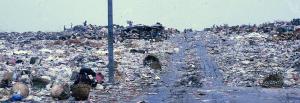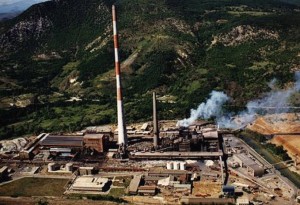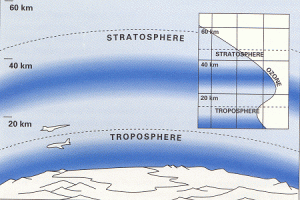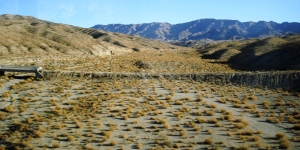
Date: 2024-12-21 Page is: DBtxt003.php txt00008522
Initiatives
Education for sustainable development (ESD)
Education for sustainable development (ESD) – do we really need it? ... Several issues threaten the sustainability of our planet
Burgess COMMENTARY
Peter Burgess
Education for sustainable development (ESD) – do we really need it?
Several issues threaten the sustainability of our planet:
Global warming and climate change are rapidly becoming the big issues of our time. – Transformative education, innovations, ingenuity, creativity, energy efficiency, massive public and private investments in “green” technologies and new, more responsible attitudes are some of the answers to the challenges UNEP: GEO5 atmosphere | Climate literacy – basic principles of climate science | IPCC (2013) The Physical Science Basis | IPCC: Climate Change 2014: Impacts, Adaptation, and Vulnerability | IPCC (2014) Mitigation of climate change || Consensus statement from global scientists | Climate change: evidence, impacts and choices (NRC) | Images of change (NASA satellite images) | NASA: Global climate change | NOAA Climate | Climate change in facts and figures | Out of the oil age | WMO climate | UNEP: Climate | CICERO: Climate | The Climate Change Performance Index | National Academics / National Research Council: Climate change – lines of evidence video series | The Climate and Development Knowledge Network (CDKN) | World Bank, 2012, Turn Down the Heat: Why a 4°C World Must Be Avoided | National Academies: A Discussion on Climate Change: Evidence and Causes (March 2014) | AAAS 2014: What we know | The Keeling curve (Scripps, March 2014) | Make 2014 the climate year | Climate Panel Stunner: Avoiding Climate Catastrophe Is Super Cheap — But Only If We Act Now (April 2014) | National Climate Assessment and Development Advisory Committee (May 2014) ||

A Maldive island in the Indian ocean.
What happens if sea levels rise by 50 centimetres?
Photo: Åke Bjørke- Biological diversity: the Earth’s biological resources – the incredibly complex pool of genes giving the biosphere its abundance of species and almost endless variations of life – is under severe threat. There are more species being extinguished per year now than 6o million years ago when the dinosaurs disappeared. How do we halt the destruction of species? How do we secure the diversity of the genetic pool of the biosphere? Biodiversity – an urgent issue | Biosphere & biodiversity | UNEP GEO5 biodiversity | Put a value on nature (TED) | Land and forest (UNEP GEO5) | Environmental atlas (EEA) | Foundation for deep ecology | Fast-moving climate zones and extinction | The economics of ecosystems and biodiversity (TEEB) | When Nature Gets a Price Tag | Ignorance is not bliss | Biodiversity Loss Becoming Major Threat For Farmed Plants And Livestock Breeds | The Sahara forest project | New Interactive Tool Helps Track Earth’s Forests | Endangered species act | The global war against nature | Humans Are Causing Largest Die-Off Since Dinosaur Age | Climate change ‘raises extinction risk’ |
- Freshwater is the basis for life. More droughts, increasing depletion of groundwater sources and more severe floods are serious threats to life several places on Earth. How do we preserve and manage water more efficiently? How do we clean polluted water in better ways? Introduction to water | Why care about water? | Virtual water (NG) | Virtual Water and Sustainability | World water crisis | Is time running out for saving our drinking water? | International water association | IWRM | Physical resources – water, pollution, minerals | Twenty more Niles needed to feed growing populations | Water for life | UNEP:GEO5-water | Water privatisation in Africa | Water privatisation | Rainwater harvesting | Nature’s silent currency -water | Water resources – impacts and adaptation | Water and industry | Water security | Water footprint assessment | 30 facts about the coming water crisis | Act now to avert global water crisis | Water: The Most Critical Asset in Your Production Strategy | The global water crisis – why water politics matter for business security | Water Wars: Egyptians Condemn Ethiopia’s Nile Dam Project | The end of abundance | Water (Guardian hub) | Water world | Colorado river and water distribution | Water Shortage Seen Worsening on Climate Change in Potsdam Study | The Importance of Water to the US Economy | Arab World Sinks Deeper into Water Crisis, Warns UNDP | Water online | Where will the world’s water conflicts erupt? | New material sucks water from the air | At the Crucial Nexus of Water and Energy | A world without water | Why Water Is A Critical Business Issue | Water Pressures in Central Asia |
- Natural resources may be perceived as endless and eternal. They are not. We quickly approach “peak oil“, “peak phosphate“, “peak coal” etc. How do we handle a resource crisis – if just the richest can afford buying the resources we all need? Story of stuff | Running out of phosphorus? | Were the Peak Oil Theorists Right?.
| Full Planet, Empty Plates: The New Geopolitics of Food Scarcity |
. - Waste – Our current economic system produces enormous amounts of waste. The biggest human “constructions” ever are our garbage dumps. How do we reduce, reuse and recycle much more efficiently? How do we get our waste into the ecological cycles? Story of stuff – consumption | How Waste Collection is cleaning Up | UNEP GEO5 Chemicals and waste | Garbage to green in 5 steps | The pacific garbage patch | Midway | Waves of Trash in Indonesia | Toxic ‘e-waste’ dumped in poor nations, says United Nations | Food Waste Management Scenario | Integrated waste management | Zero waste in action | Everything Wrong With Humanity, In One Short Animation | The Five Ws of Recycling: What, Why, When, Where, Who (and How) |
- Chemicals – It is becoming increasingly evident that in combination some chemicals can cause harmful effects in wildlife species, in laboratory animals, and in humans, even in concentrations considered safe for the individual chemical. Chemical cocktails – a serious matter of concern
| Why is autism drastically on the rise? A chemical horror story
| Harmful substances (UNEP)
| How we could prevent massive bee death and save our food
| Pure strategies | Toxic waste
| Poisoning the poor – Electronic Waste in Ghana
| Why Basic Protections from Harmful Chemicals Are So Hard to Get
| Principles of green chemistry and engineering
| The 10 Most Toxic Cities in the World
| Another Toxic Threat from Climate Change
| Generation Toxic
| How to Prevent Chemicals from Draining Our Brains
| Millions Of Acres Of Chinese Farmland Too Polluted To Grow Food, Highlighting Growing Threat
| Pesticides halve bees’ pollen gathering ability, research shows
| Your Life Is the Lab: Toxic Chemicals in 5 Unexpected Places
| The case of the vanishing bees |
. - The Oceans are stressed, polluted, overtaxed, increasingly acidic. Efficient global management is urgently needed.
| Oceans Face Triple Threat Of Warming, Declining Oxygen And Acidification, Study Shows
| Fishing and conservation
| Dark cloud over fisheries
| Sylvia Earle: Save our oceans (TED)
| Losing Nemo: short animated film about industrial overfishing
| The true value of our oceans
| Plasticised | | Protect the Coral reefs
| What good are Coral reefs? | Sailing past plastics
| Plastic Junk Litters our Oceans, Killing Sea Life — And it’s Getting Worse
|
- Population control. All our systems – liberalism, socialism, mercantilism, keynesianism, neo-liberalism etc are based on philosophies formed when the human population on Earth was less than 2 billion people. All world religions were formed when the world population was less than a billion people. We have no clear system in place for handling seven billion people – not to speak about the nine billion people we will be in 30 years. The most efficient way to reduce population growth is education, especially female higher education. World population meter | Population and consumption key to the future (BBC April 2012) | Population growth increases climate fear | Population bulletin (2004) Transitions in world population | Hardin: the tragedy of the commons | A Smartypants Scientist Makes An Easy Analogy About Our Planet, And Now I’m Scared | Ageing populations in the OECD | Population pyramids | Demographic Transition and Population Pyramids | What stops population growth? | The Case for Investing in Girls | Hans Rosling: Debunking the myth that helping the poor is causing overpopulation (video) | Hans Rosling: The best stats (TED lecture) | Hans Rosling: Will saving poor children lead to overpopulation? | Population action | Economics of birth control | Overpopulation is still the problem | Rosling (2013) Demography and climate change |
- Ecology, development and economy are interrelated. Development is necessary for ensuring ecologically sound economical practices. How can we transform our economies from “cowboy-economy” to “space-ship economy”? How can we secure reasonable prosperity for all? Eco-economy Dan Barber: How I fell in love with a fish (TED Lecture)
| How can we ensure a solidarity-based green eco-economy that includes the poor, while avoiding landgrabbing and more resources to the rich and to multinational companies? Is it possible to use GMO-technologies without ecological and social harm?
| The genetically modified food debate: Where do we begin?
| The millennium development goals report (2014)
| Monsanto’s GMO Feed Creates Horrific Physical Ailments in Animals
| Is extremism in defense of GM food a vice?
| GMO Myths
| Voracious Worm Evolves to Eat Biotech Corn Engineered to Kill It
| UNEP GEO5 Earth systems
| Ecosystem management (UNEP)
| Environmental governance (UNEP)
| Human development report 2013 | Education Plays Key Role in Advancing Women, Girls, and Communities (WB 2014) | The story of solutions | Investment in women is the key to global food security |
- Corruption, land-grabbing, international crime syndicates, tax-havens for the superrich. Globalisation processes must include much better international law enforcement – also against the super-rich and organised crime networks. The Universal Declaration of Human Rights must be respected everywhere. Irresponsible depletion of our common natural resources and ecosystems must stop. International organised crime syndicates may not continue illegal trade in endangered species and other natural resources, trafficking, toxic waste, drug- and weapon smuggling. Just tax systems and taxes on big international financial transactions are necessary tools.
. - Growing cities. More of the world’s populations will live in cities. That can be a good thing if managed properly. How do we make cities greener, more ecologically sound, healthier and more attractive to live in? UN-HABITAT is one of the organisations working with these questions. See: sustainable society of 2040 | Masdar – the sustainable city.| Making the Urban Poor Safer: Lessons from Nairobi and Maharashtra | The C40 Cities Climate Leadership Group | Solar road ways | Sustainability science |

- Ozone layer depletion. The ozone layer acts like a giant sunshade, protecting plants and animals from much of the sun’s harmful ultraviolet radiation. Ozone forms a layer in the stratosphere, 15-40 km above earth surface. If the ozone in the atmosphere from ground level to a height of 60 km could be assembled at the earth’s surface, it would comprise a layer of gas only about 3 mm thick.
Global stratospheric ozone levels have declined, which means that the ozone layer is changing. A depletion of the ozone layer will increase the UV-radiation at ground level, in the troposphere. Increasing doses of UV-B may cause skin cancer, eye cataracts, damage to the immune system in animals as well as human beings, and have an adverse impact on plant growth.
Ozone hole ‘changes Southern Hemisphere weather’ || Climate Change and Your Health: Rising Temperatures, Worsening Ozone Pollution (Union of concerned scientists) || Montreal protocol (Wikipedia) || Ozone observations NASA || We are not supposed to see this at all || Ozone Layer on Track to Recovery: Success Story Should Encourage Action on Climate ||
.
- Land degradation. Land degradation accelerates due to increasing pressures of agricultural and industrialised livestock production, urbanization, deforestation, and extreme weather events such as droughts and coastal surges which salinate land. Instead of increasing cropland areas and making them more resilient, we degrade and reduce these areas. UNEP GEO5 Land |Fighting desertification (TED lecture) | Soil Science (BBC) | The crisis in global land use | True-cost accounting in food and farming | Peak soil: industrial civilisation is on the verge of eating itself | Riots, Towns Gone Dry, Soaring Prices: The Food-Pocalypse Is Already Upon Us (April 2014) | How to boost food production in Africa |
There are three main spheres of sustainable development: environment, society and economy. Environmental issues like water and waste affect every nation. Social issues like employment, human rights , equity and security are in the newspaper headlines everywhere every day. Economic issues like poverty reduction and corporate responsibility must be addressed by all responsible politicians. UNEP GEO5 Sustainability and scenarios
Education for Sustainable Development (ESD) is clearly needed. ESD should be integrated in all education at all stages. The goals must be to:
- facilitate networking, linkages, exchange and interaction among all relevant stakeholders
- foster increased quality of teaching and learning in education for sustainable development
- help countries make progress towards and attain the Millennium Development Goals (MDGs) as a first minimum
- help private and public sector abide by environmental conventions and laws and follow international ethical and environmental standards for extraction, production and trade, like the ISO 14000 and ISO 26000
- develop action competence and awareness on ESD
- build hope for a better, sustainable future
“Full access to quality education at all levels is an essential condition for achieving sustainable development, poverty eradication, gender equality and women’s empowerment as well as human development, for the attainment of the internationally agreed development goals including the Millennium Development Goals, as well as for the full participation of both women and men, in particular young people” UNCD 2012 THE FUTURE WE WANT (Focus on Rio + 10 http://unep.org/)








